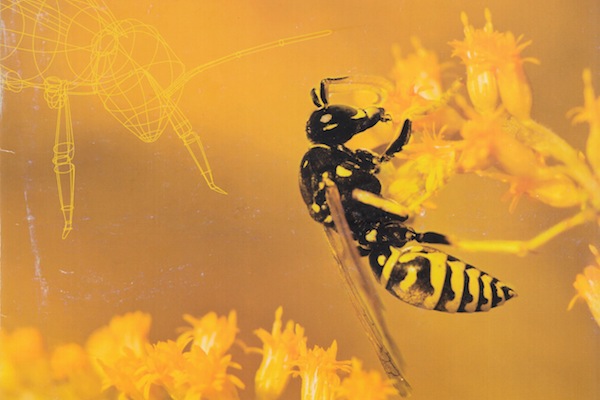The venom that is injected by wasps and bees contains allergens which can cause an allergic reaction in 1 out of 10 people. Those not allergic to insect stings or bites probably experience normal swelling and skin irritation that last for a few hours. Those with insect allergies tend to have large areas of hives, swelling and itching that may last for days or weeks. However, for others, the reaction can develop into a life-threatening emergency called anaphylactic shock. Anyone with a sensitivity to insect stings or bites should see an allergist for diagnosis and treatment.
Wasps, bees, hornets and yellow jackets belong to the order Hymenoptera, and are responsible for many cases of insect allergies each year.
Bee stings
Bees are not naturally aggressive. They sting only when they feel threatened or when their nest is in danger.
A bee’s stinger is barbed and cannot be withdrawn when the skin is penetrated – a real miniature harpoon! In the bee’s struggle to escape, the stinger, poison gland, and some of the digestive tract are torn from its body, so the bee dies.

Wasp stings
Wasps (ordinary wasp and hornet), on the other hand, are naturally aggressive. They are particularly aggressive in the autumn, when their food runs out.
A wasp’s stinger is smooth (non-barbed) and can be easily withdrawn. A wasp therefore can sting again and again.
Symptoms:
After a bee or wasp sting, you will notice a small, itchy bump, which rapidly disappears. This local reaction is caused by the insect’s venom, not an allergy.
For certain sensitive people, a local reaction which is also allergic and can be much more serious: a painful red swelling which may spread and last a couple of days.
Stings can also provoke generalised reactions with a variety of consequences (urticaria, oedema, vomiting, diarrhoea, rhinitis symptoms, an asthma attack, anaphylactic shock).
Just because you had a bad, generalised reaction to one insect sting does not mean you will necessarily react the same way again. However, there is a 50-50 chance you will.
Tip: Precautions against insect stings
- Prevent children from playing near tree trunks or stumps (they often house wasp nests).
- Do not walk barefoot in grass. Bees may be foraging on small flowers and some bees live in colonies on the ground.
- Do not go on picnics, eat fruit, or drink sweet drinks out-of-doors, which may attract insects.
- Do not sunbathe if you are wet or sweaty, or covered in suntan oil, which may attract insects.
- Do not wear brightly coloured, flower-patterned clothing, which may attract insects.
- Stay calm when there is a bee or wasp about.
- Check your car for bees or wasps before getting in.
